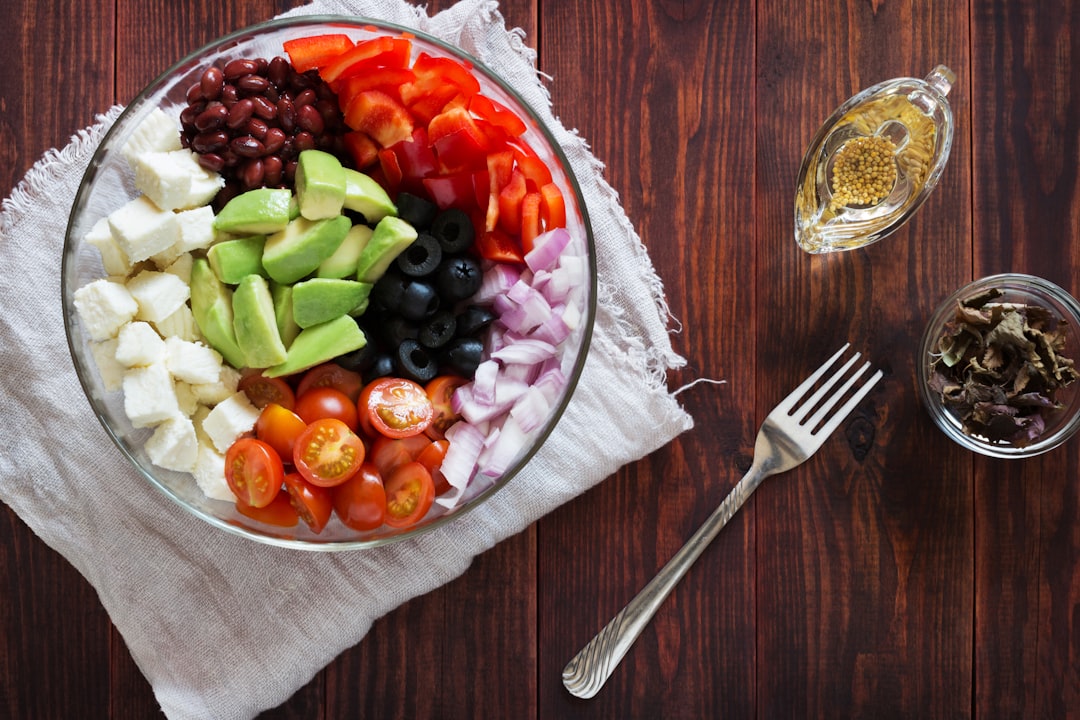Embarking on a journey towards healthier eating can often feel overwhelming, filled with strict rules and drastic changes. Many people abandon their efforts because they attempt too much too soon, leading to burnout and frustration. The truth is, sustainable healthy eating isn’t about perfection; it’s about progress and consistency.
This guide will walk you through practical, achievable steps to integrate healthier eating habits into your daily life without feeling deprived or overwhelmed. We’ll explore strategies that focus on gradual changes, mindful consumption, and smart preparation, ensuring your path to wellness is both effective and enjoyable. By the end of this article, you’ll have a clear roadmap to build lasting healthy habits that truly fit your lifestyle.
Embrace Gradual Changes, Not Overhauls
One of the most common pitfalls in starting a healthy eating journey is attempting to change everything at once. This “all or nothing” approach often leads to quick failure. Instead, focus on making small, manageable adjustments that you can consistently maintain over time.
Start Small: One Habit at a Time
Think about one or two specific changes you can realistically implement this week. For example, instead of cutting out all sugar, try reducing sugary drinks to just one per day, or swapping out one processed snack for a piece of fruit. These small victories build confidence and momentum.
- Hydrate More: Replace one sugary drink with water daily.
- Add Vegetables: Include one extra serving of vegetables with dinner.
- Mindful Snacking: Swap a bag of chips for a handful of nuts or an apple.
Research suggests that small, consistent changes are far more effective for long-term habit formation than drastic, unsustainable ones. Focus on building a foundation of healthy choices rather than chasing immediate, dramatic results.

Master Mindful Eating Practices
Mindful eating is about paying attention to your food, your body’s hunger and fullness cues, and the experience of eating. It helps you develop a healthier relationship with food, reducing overeating and increasing satisfaction.
Tune into Your Body’s Signals
Before you eat, ask yourself if you’re truly hungry or if you’re eating out of boredom, stress, or habit. During your meal, eat slowly, savoring each bite. Pay attention to the flavors, textures, and aromas. This practice can help you recognize when you’re satisfied, not just full.
Tip for Mindful Eating: Put your fork down between bites. This simple action forces you to slow down and allows your brain to catch up with your stomach, registering fullness more accurately.
For more insights into mindful eating, consider exploring resources from reputable institutions. Harvard Health offers an excellent article on the topic: Harvard Health: Mindful Eating.
Simplify Meal Planning and Preparation
One of the biggest hurdles to healthy eating is a lack of time and preparation. Planning your meals in advance and doing some basic prep can significantly increase your chances of sticking to your goals.
The Power of Weekly Meal Prep
Dedicate a few hours one day a week (e.g., Sunday afternoon) to plan your meals and prep ingredients. This could involve chopping vegetables, cooking grains, or portioning out snacks. Having healthy options readily available reduces the temptation to grab unhealthy convenience foods.

Consider a simple meal prep strategy:
- Choose a Theme: Pick a protein (chicken, beans), a grain (quinoa, brown rice), and a few vegetables.
- Cook in Bulk: Prepare larger quantities of these base ingredients.
- Mix and Match: Combine them in different ways throughout the week for variety.
The Mayo Clinic provides further details on the benefits and methods of meal prepping for a healthier lifestyle: Mayo Clinic: Meal Prepping for a Healthier You.
Prioritize Whole Foods and Hydration
At the core of healthy eating is a focus on whole, unprocessed foods. These foods are rich in nutrients, fiber, and natural compounds that support overall health. Equally important is adequate hydration.
The Foundation: Whole Foods
Aim to fill your plate with fruits, vegetables, whole grains, lean proteins, and healthy fats. These foods provide sustained energy, help manage weight, and reduce the risk of chronic diseases. Minimize highly processed foods, which often contain excessive sugar, unhealthy fats, and sodium.
“Eating a variety of nutrient-dense foods from all food groups is key to a healthy diet. Focus on whole foods that are as close to their natural state as possible.”
– Centers for Disease Control and Prevention (CDC)
The CDC offers comprehensive guidelines on healthy eating basics that emphasize whole foods: CDC Healthy Eating Basics.
Stay Hydrated: Water is Key
Often, what we perceive as hunger is actually thirst. Drinking enough water throughout the day is crucial for metabolism, energy levels, and overall bodily functions. Aim for at least 8 glasses (about 2 liters) of water daily, adjusting for activity level and climate.

Keep a water bottle handy as a visual reminder to drink. Infuse water with fruits or herbs if plain water is unappealing.
Understand and Navigate Challenges
No healthy eating journey is without its challenges. Understanding common obstacles and developing strategies to overcome them is crucial for long-term success. Perfection is not the goal; resilience is.
Dealing with Cravings and Setbacks
Cravings are normal. Instead of fighting them, acknowledge them and try to understand their root cause. Are you truly hungry, or are you stressed, bored, or tired? If you do indulge, don’t let it derail your entire effort. One unhealthy meal doesn’t erase days of good choices.
Strategy for Setbacks: If you have an off day, simply return to your healthy habits at the next meal. Don’t wait until Monday or the next month. Consistency over time is what truly matters.
Social Situations and Eating Out
Eating out or attending social gatherings can be tricky. Plan ahead by looking at menus online, choosing restaurants with healthier options, or eating a small healthy snack before you go. Don’t be afraid to ask for modifications to your meal, such as dressing on the side or extra vegetables.
Beyond Food: Lifestyle Factors
Healthy eating doesn’t exist in a vacuum. Other lifestyle factors significantly impact your ability to maintain good dietary habits and overall well-being.
The Role of Sleep and Stress Management
Lack of sleep can disrupt hunger hormones, leading to increased cravings for high-calorie, unhealthy foods. Chronic stress can also lead to emotional eating. Prioritizing 7-9 hours of quality sleep and incorporating stress-reducing activities (like meditation, yoga, or hobbies) can profoundly support your healthy eating goals.
Movement and Physical Activity
While not directly about food, regular physical activity complements healthy eating by improving metabolism, mood, and energy levels. Even short walks can make a difference. When you feel good physically, you’re often more motivated to make healthy food choices.
Whole Foods vs. Processed Foods: A Quick Comparison
| Category | Whole Foods (Examples) | Processed Foods (Examples) |
|---|---|---|
| Nutrient Density | High (Vitamins, Minerals, Fiber) | Low (Often “empty calories”) |
| Ingredients | Single or few, recognizable | Many, often artificial additives |
| Satiety | High (Fiber and protein) | Low (Quickly digested, leads to more hunger) |
| Health Impact | Supports overall health, reduces disease risk | Linked to increased risk of chronic diseases |
Conclusion: Your Sustainable Path to Wellness
Starting healthy eating habits doesn’t require a complete lifestyle overhaul or rigid restrictions. It’s about making realistic, consistent choices that build up over time. By embracing gradual changes, practicing mindful eating, simplifying meal preparation, prioritizing whole foods and hydration, and managing lifestyle factors like sleep and stress, you can create a sustainable path to better health.
Remember, progress, not perfection, is the goal. Celebrate your small victories, learn from setbacks, and be patient with yourself. Your body will thank you for the consistent effort.
Ready to take the next step? Consider keeping a simple food journal for a week to identify your current eating patterns and pinpoint one or two areas where you can easily make a healthy swap. Small changes truly lead to big results.
What’s one realistic healthy eating habit you plan to start this week?
Further Reading & Resources:
- World Health Organization (WHO): Healthy Diet Fact Sheet – Provides global recommendations for a healthy diet.
- Nutrition.gov: Basic Nutrition – A U.S. government resource offering comprehensive information on nutrition.
- Harvard T.H. Chan School of Public Health: The Healthy Eating Plate – A visual guide to building healthy meals.
